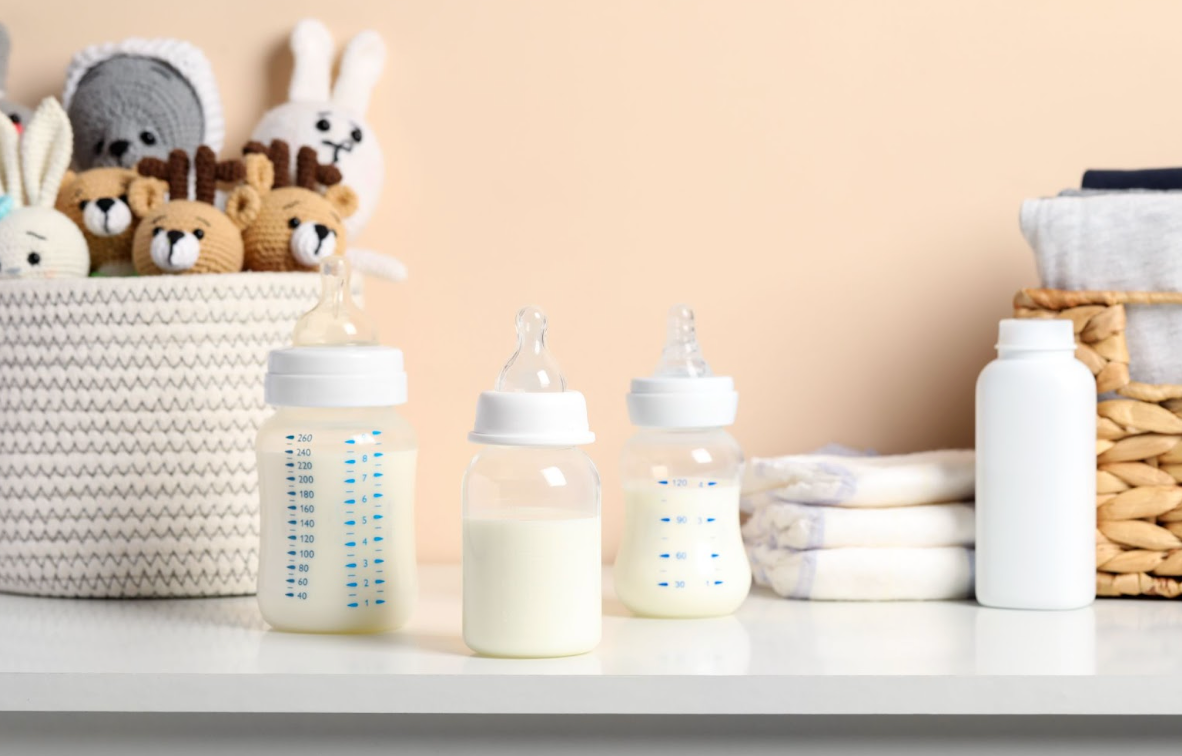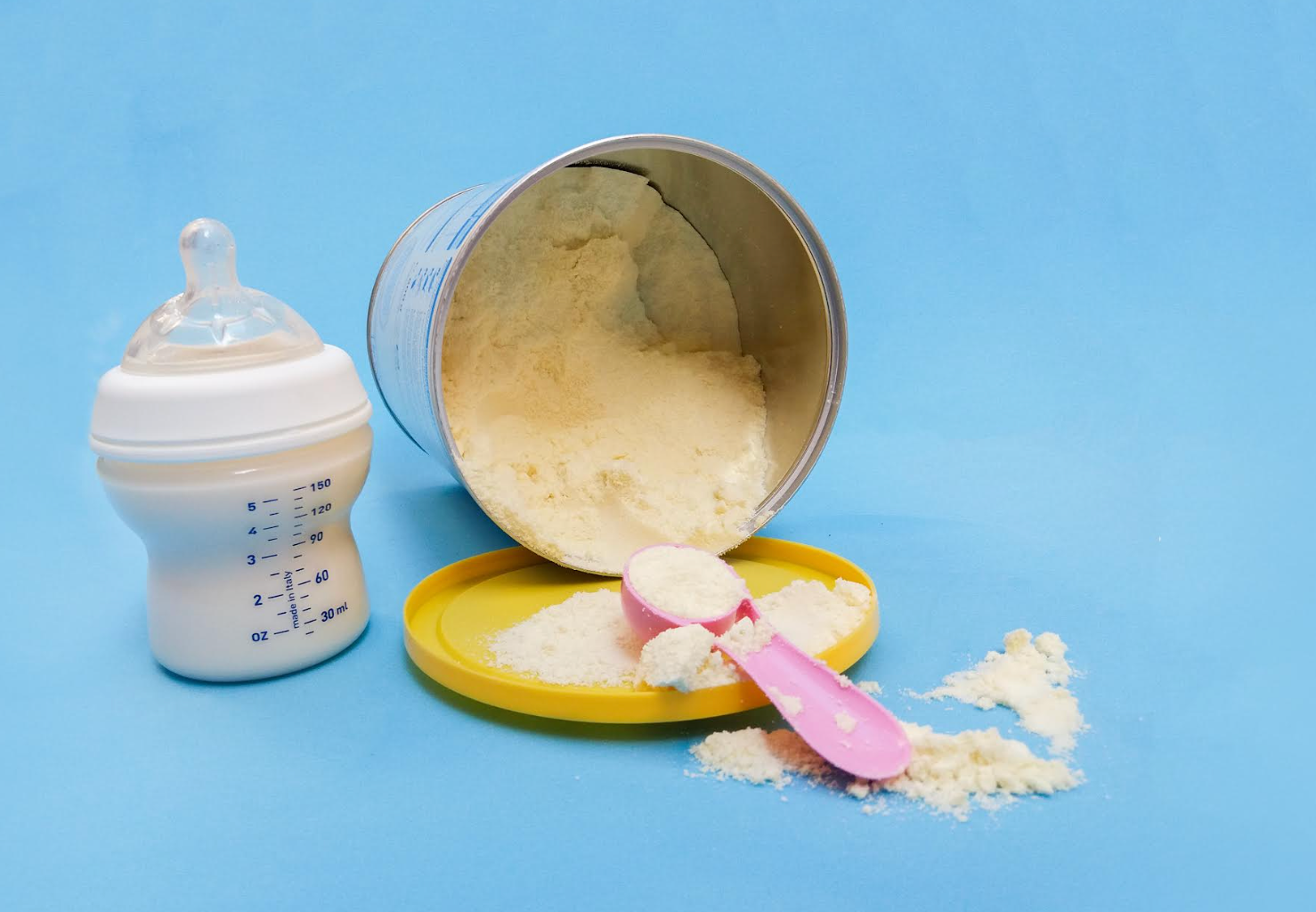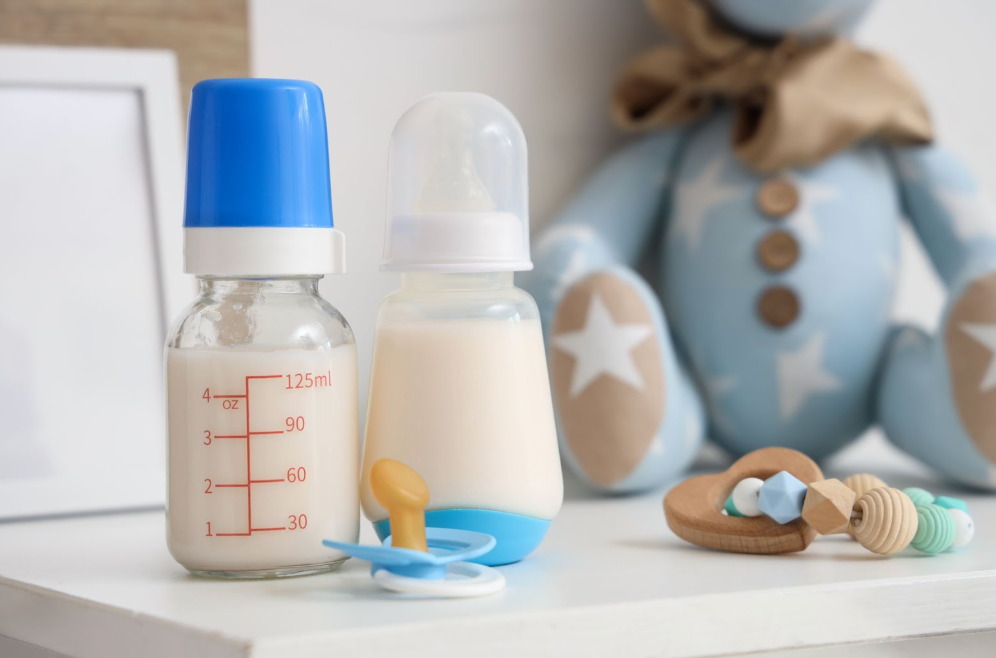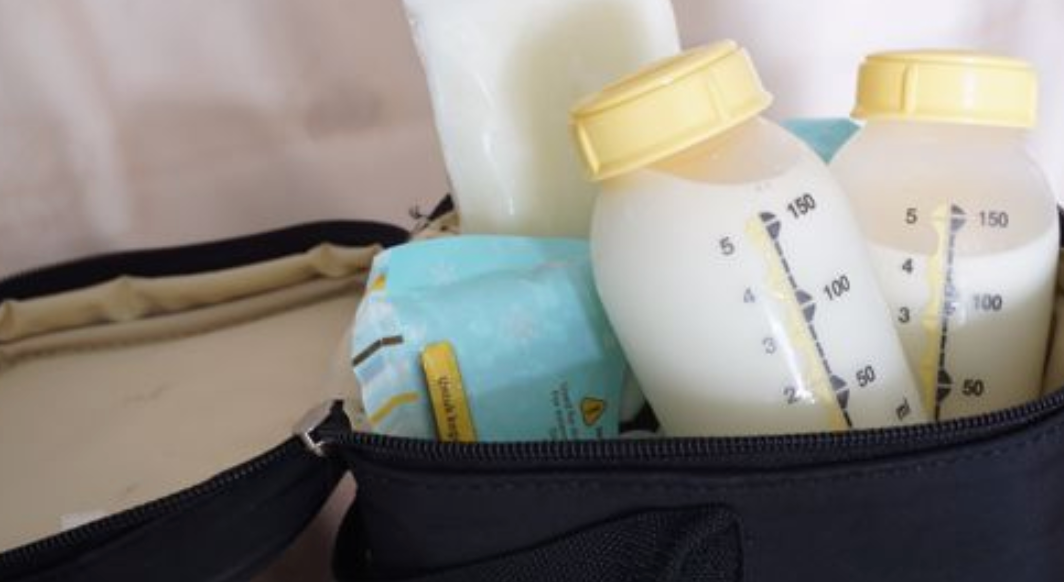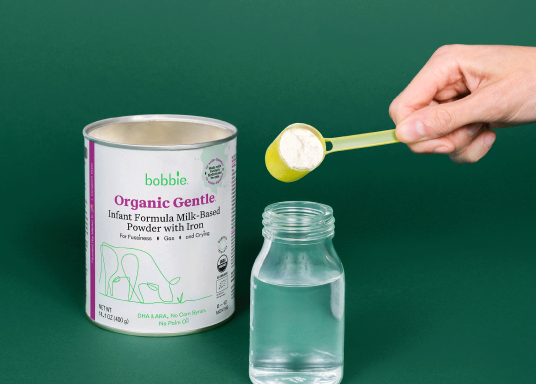Published September 5, 2024

Creating a Balanced 6-Month-Old Feeding Schedule: Solids and Formula
It’s an exciting time: Your little one is hitting the 6-month mark, and it's time to dive into the wonderful world of solids. The new textures, tastes, and smells are just around the corner, and introducing solids is a big milestone — congratulations!
We’re here to provide information to help you navigate a balanced feeding schedule for your 6-month-old, combining solids with breast milk or formula. We’ll also highlight the importance of being flexible, tuning into your baby's hunger cues, and exploring baby-led weaning principles.
How Much Should I Feed My 6-Month-Old?
According to the American Academy of Pediatrics, at around 6 months old, your baby's nutritional needs are changing, so it's time to tweak their feeding schedule. While breast milk or infant formula will still be their main source of nutrition until their first birthday, adding solids to their diet gives them extra nutrients and helps them build important oral and motor skills.
Follow This Easy Feeding Guide for a 6-Month-Old
Not sure how to get started? Here’s a sample feeding schedule for your 6-month-old baby that includes breast milk or formula (or both if you’re combo feeding!), along with one meal of solids:
- Morning — 7:30 AM: Start the day with a breastfeeding or formula session. Many bottle-fed babies around 6 months of age will take 5-8 ounces of breast milk or formula when they wake up.
- Mid-morning — 10:30 AM: Time for another breastfeeding or infant formula feeding session!
- Lunch — 1:30 PM: Offer a breastfeeding or formula session to keep your baby’s tummy satisfied.
- Afternoon — 4:00 PM: The afternoon is another opportunity for a breastfeeding or formula-feeding session.
- Dinner — 5:30 PM: During family dinner, introduce your baby to solids with a small serving of something like mashed avocado, cooked carrots, or eggs. If you’re doing baby-led weaning, let them explore appropriately-sized pieces of the family meal. Remember, it’s perfectly normal for your baby to play with, gnaw on, or even throw the food. The goal is to get them used to solids, not to replace the nutrition from breast milk or formula.
- Bedtime — 7:30 PM: Before bed, offer one last breastfeeding or formula feeding session to end their day on a full tummy.
Keep in mind, this sample schedule is just a guideline — every baby is different. Some might be more excited about solids at certain times, while others might prefer more milk. The main thing is to ensure your baby gets 24-32 ounces of breastmilk or formula each day while also giving them chances to explore new flavors and textures.
Bobbie infant formulas are clean, EU-style infant formulas that meets all FDA requirements. They are complete nutrition, milk-based powder, modeled after breast milk and is easy on tummies. They are all non-GMO and do not have corn syrup, palm oil, or maltodextrin. Shop Bobbie today!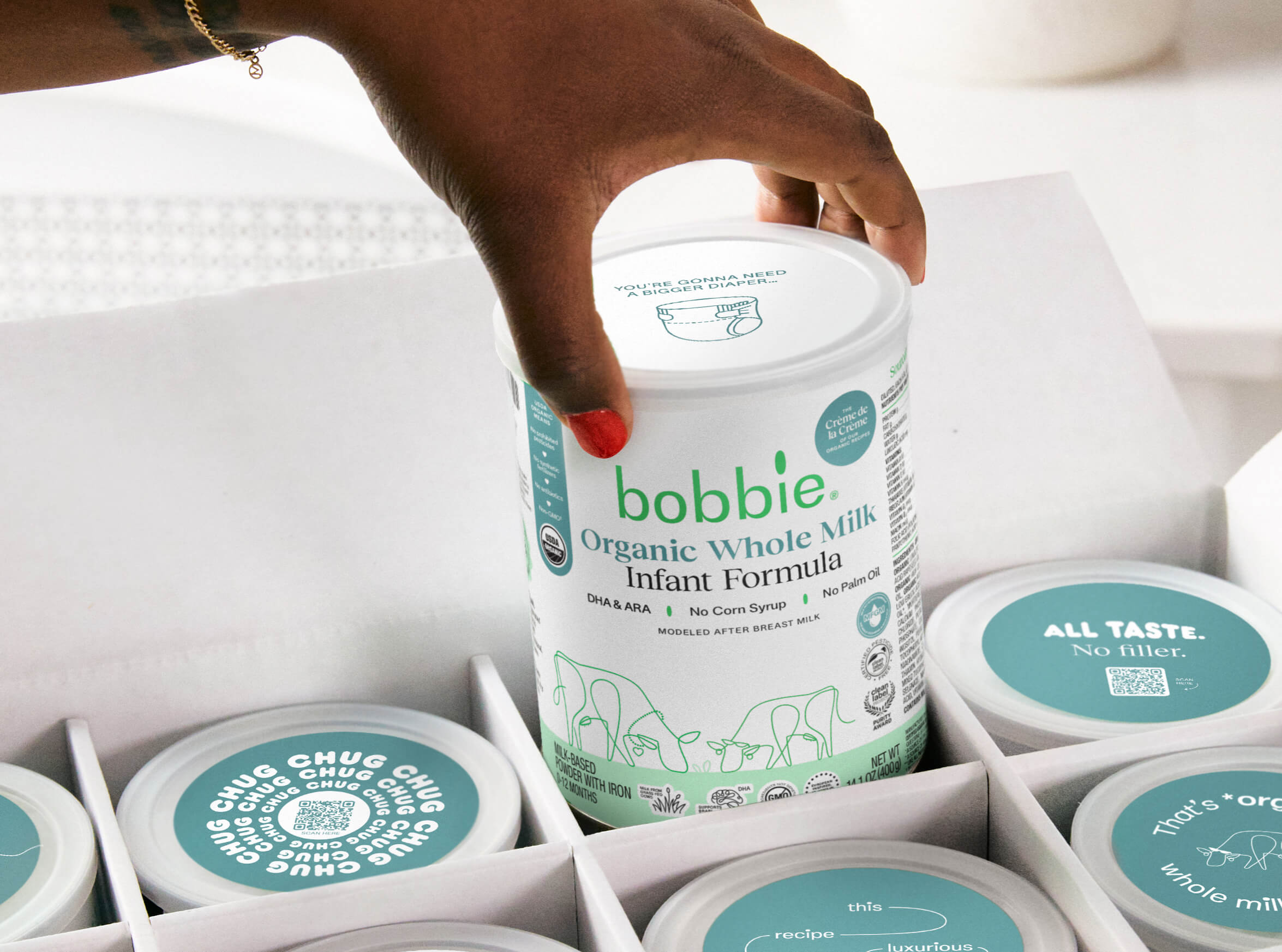
Shop Bobbie Baby Formula

Potential Challenges and How To Address Them
Running into challenges while introducing solids is completely normal, so don’t worry! Here are some common issues new parents face and tips on how to handle them effectively:
- Food refusals: Introduce new foods slowly and offer them several times. Babies often need multiple tries to warm up to a new taste or texture. Keep your efforts upbeat — consistency and patience go a long way.
- Allergies and sensitivities: Food Allergy Research & Education reports that nearly 3% of U.S. infants develop a food allergy in the first year of life. One way to reduce allergen risk? After consulting with your child’s healthcare provider, introduce allergens like eggs, nuts, and soy early (between 4-6 months) and, if no reaction, continue to offer them to your baby for consistent exposure. Some doctors may suggest trying new foods one at a time to watch for any signs of allergies. This helps you pinpoint potential issues and handle them effectively. Make a note of any reactions to discuss with your pediatrician if needed.
- Inconsistent appetite: Be flexible and monitor your baby’s hunger signals. Adjust their feeding schedule as needed, since appetite can vary from day to day. Be sure to trust your baby’s natural cues and avoid forcing them to eat.
- Digestive issues: Add fiber-rich foods like cooked carrots and sweet potatoes to support healthy digestion as your baby adjusts to solids. Gradually increase fiber to ease any digestive discomfort. Additionally, “P” foods like prunes, pears, and papaya can help keep stools soft!
- Texture aversion: Some babies are wary of new textures. Start with smooth purees and slowly introduce more varied textures as your baby gets used to eating solids. Be patient and give them time to adapt.
Tips for a Successful 6-Month-Old Feeding Schedule
Knowing how much to feed and when to introduce new foods can make starting solids with your 6-month-old feel a bit overwhelming. That’s why we’re sharing practical tips to help make this transition smoother and more enjoyable for both of you.
- Responsive baby feeding: Keep an eye on your baby’s hunger and fullness cues. If they’re not interested in eating, don’t force it — let them stop when they’re satisfied.
- Variety is key: Mix things up with a variety of foods to introduce your formula or breastfed baby to different tastes and textures. This helps them develop a diverse palate!
- Safety first: Always watch your baby during mealtime to avoid choking hazards. Make sure foods are cut or mashed into safe sizes and steer clear of whole grapes, popcorn, or nuts. Your baby should eat only while securely buckled in a high chair, not on the floor or in a car seat.
- Stay hydrated: Keep offering breast milk or formula to ensure your baby stays hydrated, even as they start solids. Many pediatricians suggest introducing a straw or open cup with a few ounces of water at mealtime. Remember, breast milk and/or formula should remain the primary source of nutrition throughout your baby’s first year, even as you introduce solids!
- Flexibility: Be adaptable with your baby's feeding schedule, and introduce solids at a pace that feels right for you and your little one — it’s all part of the journey.
- Build a positive feeding routine: Establish a consistent mealtime routine to create a sense of security and predictability for your baby. Keep mealtimes relaxed and enjoyable, and try to sit down together as a family whenever possible.
- Involve your baby in family meals: As your baby becomes more comfortable with solids, let them join in on family mealtimes. This not only helps them feel included but also exposes them to table food and different eating habits.
- Consult with a pediatrician: If you have any concerns or questions about your baby’s feeding, growth or nutrition, don’t hesitate to reach out to your pediatrician for personalized advice.
Sign up to get the scoop on feeding, sleep, poop, and so much more. By singing up for email, you are to receive marketing emails from Bobbie and can manage your email preferences or unsubscribe at anytime

Your go-to resource for all things new baby.
6-Month-Old Feeding FAQs: Answering Your Questions on Solids
As your baby reaches the 6-month mark, here's everything you need to know to confidently start them on their solid food journey:
Breast milk or formula?
At 6 months old, breast milk or formula should still be your baby’s main source of nutrition. Start with their usual breast milk or formula before introducing solids. Aim for about 24-32 ounces of breastmilk or formula each day, no matter how much solid food they eat. Keep an eye on your baby’s hunger and fullness cues to make sure they’re getting the right amount. Every baby is different, so don’t hesitate to consult with your pediatrician for personalized advice.
When should I introduce solids?
Around 6 months is generally a good time to start introducing solids to your baby. But instead of focusing solely on age, look for signs of readiness like:
- Good head control
- Sitting up with support
- Showing interest in your food
Some healthcare professionals suggest starting with a single-ingredient, iron-fortified baby cereal like rice or oatmeal. Iron is essential for baby development as their iron stores from pregnancy start to deplete around this age.
What are the best first foods to introduce?
When starting solids, aim for gentle, nutrient-rich options that are easy on your baby's developing system. As mentioned above, iron-fortified baby cereals like rice or oatmeal are popular choices. You can also try pureed fruits like apples, pears or bananas, and veggies like sweet potatoes or carrots. As your baby gets comfortable, gradually introduce more textures and flavors. The key is to keep it simple and slowly build their palate.
Can I mix solids with breast milk or formula?
Absolutely! Mixing solids with breast milk or formula can make the transition easier for your baby by blending familiar tastes with new textures. Start by adding a bit of breast milk or formula to purees or baby cereal in a bowl (it is not recommended to add foods to already prepared bottles of breastmilk or infant formula). This approach helps ensure your baby is still getting the essential nutrients they need while introducing solids. Plus, it’s a great way to maintain a smooth consistency that’s easy for them to swallow.
What’s baby-led weaning?
Baby-led weaning is a feeding approach that encourages babies to self-feed and explore different textures and flavors on their own. Instead of spoon-feeding purees, you offer small, soft pieces of food that your baby can pick up and bring to their mouth.
This approach promotes independence and helps your little one develop fine motor skills, chewing abilities and a positive relationship with food. Great finger foods for a 6-month-old include:
- Well-cooked veggies like sweet potato and broccoli
- Ripe fruits like banana and avocado
- Soft proteins like scrambled eggs or shredded chicken
Many parents choose to combine purees with baby-led weaning, but it’s all about what works best for you and your baby. There’s no single right way to introduce table foods — feel free to mix and match approaches or try something new if needed.
Can I meal prep baby food?
Absolutely! Meal prepping for your baby is a game-changer. You can batch-cook purees or soft foods and freeze them in small portions — ice cube trays work great for this. Just remember that the shelf life of prepared baby food varies depending on whether it’s homemade or store-bought and how it’s stored. Always follow specific storage instructions for different foods or breast milk to ensure safety and freshness.
When should I introduce utensils and self-feeding?
You can start introducing utensils and encouraging self-feeding as early as 6 months, depending on your baby’s readiness. Soft, easy-to-grip spoons are a good place to start. While your baby might just play with the utensils at first, it’s all part of learning. Encouraging self-feeding with finger foods can also help develop their motor skills.
Embracing Transitions in Your Baby’s Feeding Journey
A balanced feeding schedule for your 6-month-old, combining solids with breast milk or formula, is key for their growth and development. This is a time of transition, so be patient and responsive to your baby’s cues as they explore new flavors and textures. Enjoy this exciting journey as your little one starts to discover the world of food — watching them develop and become more independent is truly rewarding and sets the stage for healthy eating habits.
Looking for a thoughtfully crafted formula that your baby is sure to love? Shop Bobbie Baby Formula today!
Bobbie infant formulas are clean, EU-style infant formulas that meets all FDA requirements. They are complete nutrition, milk-based powder, modeled after breast milk and is easy on tummies. They are all non-GMO and do not have corn syrup, palm oil, or maltodextrin. Shop Bobbie today!
Shop Bobbie Baby Formula

The content on this site is for informational purposes only and not intended to be a substitute for professional medical advice, diagnosis or treatment. Discuss any health or feeding concerns with your infant’s pediatrician. Never disregard professional medical advice or delay it based on the content on this page.






